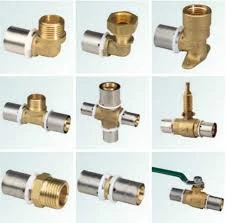Introduction
Water Pipe In recent developments, Birmingham Water Works has begun notifying its customers about the potential presence of lead in their water pipes. This alarming notification comes as part of an ongoing initiative to ensure that residents are aware of the risks posed by lead contamination in drinking water, particularly in older homes and buildings where lead pipes may still be in use. While modern water pipe systems are typically constructed using safer materials such as copper or PVC, many cities, including Birmingham, are still grappling with the legacy of outdated infrastructure that contains lead pipes.
In this article, we will explore the importance of water pipes, the risks associated with lead pipes, the steps Birmingham Water Works is taking to address the issue, and what customers can do to protect themselves from potential lead exposure. We will also answer common questions surrounding the topic of lead pipes and water safety.
The Risk of Lead in Water Pipe
Lead contamination in drinking water is a serious public health concern. While lead pipes were commonly used in the construction of water systems in the early 20th century, their dangerous effects on human health were not fully understood at the time. Lead is a toxic metal that can have severe long-term health impacts, especially in children, pregnant women, and individuals with weakened immune systems. Exposure to lead can result in developmental delays, lower IQ, behavioral problems, and damage to vital organs such as the brain, kidneys, and nervous system.
How Does Water Pipe Lead Get Into Drinking Water?
Lead can enter drinking water through lead pipes, plumbing fixtures, and solder used in plumbing systems. When water moves through lead pipes, it can dissolve small amounts of lead, which then enters the water supply. While the water itself may not always appear discolored or foul-smelling, it can still be contaminated with dangerous levels of lead. The contamination is often more pronounced when water sits in the pipes for long periods, such as overnight or during extended periods of disuse.
The Impact of Water Pipe Lead Exposure
The health risks of lead exposure are well-documented, particularly for children. Even small amounts of lead can cause significant harm, and the effects may be irreversible. Lead poisoning can lead to:
- Cognitive Impairments: Reduced IQ, learning disabilities, and attention deficits are common effects of lead exposure in children.
- Behavioral Problems: Increased aggression, impulsivity, and hyperactivity are linked to lead exposure.
- Health Issues in Adults: In adults, lead exposure can cause high blood pressure, kidney damage, and reproductive issues.
- Pregnancy Risks: Pregnant women exposed to lead may experience complications such as premature birth, low birth weight, and developmental issues for the baby.
Due to these dangers, it is critical for water utility companies like Birmingham Water Works to take proactive measures in identifying and addressing the presence of lead in water pipes.

Birmingham Water Works’ Efforts to Address Lead Water Pipe
Birmingham Water Works has initiated a comprehensive plan to notify customers who may be at risk of lead exposure due to old water pipes in their homes. The utility company is taking several important steps to tackle this issue and ensure the safety of its residents.
1. Identification of Water Pipe Affected Areas
Birmingham Water Works has begun conducting thorough assessments of the city’s water system to identify areas that may still have lead pipes in place. Older neighborhoods and properties built before the 1980s are more likely to have lead pipes. By pinpointing these areas, Birmingham Water Works can focus its efforts on informing residents who may be at risk.
2. Notifying Affected Water Pipe Customers
As part of their efforts, Birmingham Water Works is reaching out directly to customers whose properties are believed to have lead pipes. Notifications are being sent through various channels, including mail, email, and phone calls. Customers are being informed about the potential risks associated with lead exposure and are provided with resources on how to test their water and take preventative measures.
3. Providing Water Testing Kits
In an effort to help residents assess the safety of their water, Birmingham Water Works is offering water testing kits. These kits allow customers to collect samples of their water and have them tested for lead content. Testing is an essential step in determining whether lead levels in the water exceed the safe threshold, which is 15 parts per billion (ppb) according to the U.S. Environmental Protection Agency (EPA).
4. Lead Pipe Replacement Program
To address the issue of lead pipes in the long term, Birmingham Water Works has implemented a pipe replacement program. This program aims to replace old lead pipes with safer materials, such as copper or PVC, that do not pose a health risk. The utility company is prioritizing areas with the highest concentrations of lead pipes and working to gradually replace them over time.
5. Public Education and Awareness
Birmingham Water Works is also focusing on public education efforts to raise awareness about the dangers of lead in drinking water. The company is hosting informational sessions, distributing educational materials, and engaging with the community to ensure that residents understand the risks associated with lead pipes and the steps they can take to protect their health.
How to Protect Yourself from Water Pipe Lead Exposure
While Birmingham Water Works is taking significant steps to address the issue of lead pipes, it is important for customers to take proactive measures to protect themselves in the meantime. Here are some tips for minimizing exposure to lead in drinking water:
1. Flush Your Pipes
If you suspect that you have lead pipes, one simple step you can take is to flush your pipes before using water for drinking or cooking. Let the tap run for at least 30 seconds to a minute to clear out any water that may have been sitting in the pipes. This can help reduce lead levels in the water.
2. Use a Water Filter
Consider using a water filter that is certified to remove lead. Look for filters that are approved by the NSF International, a non-profit organization that sets standards for water filtration products. Common types of filters that can remove lead include activated carbon filters and reverse osmosis systems.
3. Avoid Boiling Water
Boiling water does not remove lead; in fact, it can actually increase the concentration of lead in the water. Boiling water causes evaporation, which leaves behind any dissolved lead, making the water even more hazardous.
4. Get Your Water Tested
As mentioned earlier, testing your water for lead is an essential step in identifying whether you are at risk. Contact Birmingham Water Works to request a water testing kit and have your water tested for lead content. This will provide you with peace of mind and allow you to take appropriate action if lead levels exceed the safe limit.
5. Water Pipe Replace Lead Pipes
If you are living in an older home with lead pipes, consider replacing them as soon as possible. While this may require a financial investment, replacing lead pipes is the most effective way to eliminate the risk of lead exposure. Birmingham Water Works is working on a pipe replacement program, so inquire with the company about any available assistance or funding options for homeowners who need to replace their pipes.
The Importance of Safe Water Pipe
Water pipes are an essential component of any community’s infrastructure. They ensure the delivery of clean, potable water to homes and businesses. The quality of these pipes is directly linked to public health. Over time, materials used in water pipes, such as lead, can degrade or corrode, potentially leading to contamination of the water supply.
Modern water systems have shifted to using materials like copper, PVC, and steel, which are safer for water distribution. However, older systems, especially those in historic neighborhoods, may still contain lead pipes. Addressing this issue is crucial for protecting public health and ensuring access to clean water for all residents.
Conclusion
Birmingham Water Works’ notification to customers about potential lead water pipes is a crucial step in ensuring the safety of the community. Lead contamination in drinking water is a serious health risk, particularly for vulnerable populations like children and pregnant women. By informing customers, offering water testing kits, and implementing a pipe replacement program, Birmingham Water Works is taking important steps to mitigate this risk.
As residents of Birmingham receive these notifications, it is essential that they take immediate action to protect themselves from potential lead exposure. Flushing pipes, using water filters, and replacing lead pipes are all effective ways to reduce the risks associated with lead contamination in drinking water.
Frequently Asked Questions (FAQs)
1. How do I know if my home has lead pipes?
Lead pipes are typically found in older homes built before the 1980s. If your home has lead pipes, they are usually a dull gray color and can be scratched easily with a key or coin. You can also contact Birmingham Water Works for more information or request a water test.
2. What are the risks of drinking water from lead pipes?
Lead in drinking water can cause serious health problems, especially for children and pregnant women. It can result in cognitive impairments, developmental delays, and behavioral issues. For adults, it can cause high blood pressure, kidney damage, and reproductive issues.
3. How can I protect myself from lead exposure?
To protect yourself, you can flush your pipes before drinking water, use certified water filters, avoid boiling water, and get your water tested for lead. Replacing lead pipes is the most effective long-term solution.
4. Is Birmingham Water Works replacing lead pipes?
Yes, Birmingham Water Works is implementing a pipe replacement program to gradually replace lead pipes with safer materials like copper or PVC. The company is prioritizing areas with the highest concentrations of lead pipes.
5. How can I get my water tested for lead?
Birmingham Water Works is offering water testing kits to residents. Contact the utility company to request a kit, collect a water

















